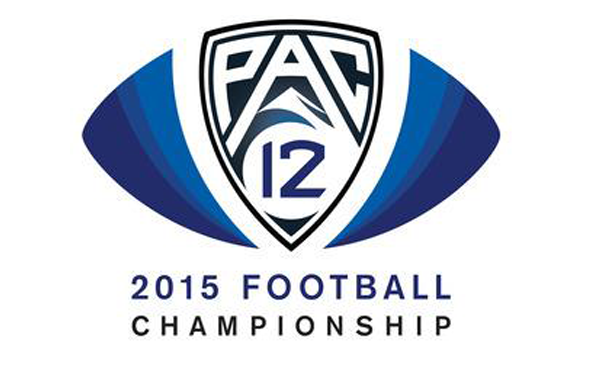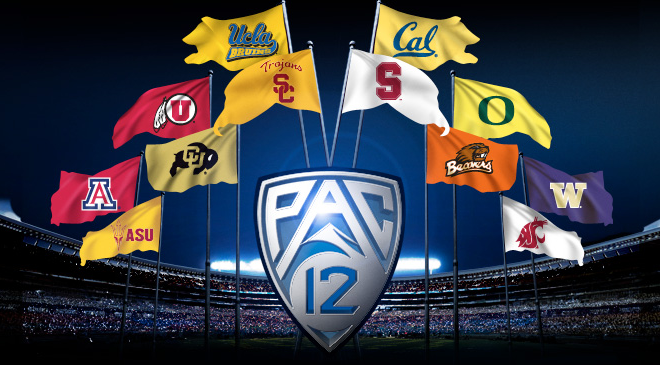Stanford head coach David Shaw may have summarized Playoff hysteria best, saying “media…sit and stew and look for somebody to blame.”
With the Pac-12 perhaps eliminated from a spot in the tournament, the conference’s 9-game league schedule became an immediate and easy target for blame despite evidence to the contrary. Internal groundswell against the Pac-12 schedule is unlikely; commissioner Larry Scott told Fox Sports’ Stewart Mandel it was “low on the totem pole,” and various Pac-12 coaches were largely unmoved when discussing the rigors of playing such a slate.
Another point arose, however, and one that goes well beyond the Pac-12 jurisdiction.
“I don’t think the problem is nine conference games,” Utah head coach Kyle Whittingham said. Whittingham’s Utes fell to No. 13 and likely out of the Playoff picture with their loss Saturday at Arizona. “The problem is the inequality across the country. If every conference of the Power Five had nine conference games, then it’s a level playing field.”
Level playing field is an interesting choice of words. Those are the same three words Alabama head coach and de facto face of SEC football Nick Saban used in the offseason to lament satellite camps.
Remember when satellite camps were a hot topic? It seems like ages ago satellite camps dominated the national conversation, but the heart of Saban’s perspective is germane to the Pac-12 schedule conversation:
Because we’re not just playing in our league now, we’re playing in a playoff at the end of the season, so the people that play in that playoff should all do it with equal ability to recruit, be it on or off campus or whatever it is.
Compare that to Whittingham on conference scheduling:
“We need to get everyone on the same page somehow and have a little more uniformity among conferences, because there’s a lot at stake,” he said. “There’s a lot at stake when you’re talking about four Playoff spots. For one conference to play nine games, and the rest have eight games, that’s a disparity.”
Arizona head coach Rich Rodriguez, whose team was in the Playoff hunt heading into last December’s Pac-12 Championship Game, echoed Whittingham’s sentiment.
“I think it should be the same within all the Power Five leagues that everybody plays nine and a championship game, or everybody eight in a conference and a championship game,” he said.
Rodriguez pointed out that the Big Ten is joining the Pac-12’s model, which became the first conference to go to a nine-game slate in 2006. The nine-game schedule addressed a few problems by alleviating the burden of finding another nonconference opponent once the college football season expanded to 12 games that year.
Then a 10-team league, the 9-game slate also ensured a more fair championship model without the benefit of a title game. The Big 12 since adopted the same strategy in 2011, after losing Nebraska to the Big Ten and Colorado to the Pac-12.
For the Pac-12, the nine-game schedule also ensured an additional quality opponent or conference rival for all its members, thereby giving fans a better product. It’s no secret West Coasters lack the zeal of their Midwestern or Southern peers, thus a more attractive schedule is necessary to sell tickets.
The same is true for selling the TV products. With rights packages commanding astronomical figures, a higher quality TV product commands more interest. That goes double for the independently owned Pac-12 Networks, which is on enough of an uphill climb already without trying to sell consumers (and thus providers) on games against Idaho, FAU, Charleston Southern and The Citadel — four of the opponents featured on the ESPN-owned SEC Network in the coming weekend.
And that brings us back to Nick Saban’s level playing field. This week, much of the SEC plays the kind of win-column fodder the rest of the Power Five reserves from early September.
You can argue whether it’s an unfair advantage for the SEC or smart scheduling, and you aren’t wrong either way. Alabama benefited from playing Western Carolina the same week Oregon lost Stanford and Kansas State lost to Baylor in 2012, a pair of games played as part of a nine-game conference schedule.
Unless compelled to change, the SEC has no reason to. Sure, the Big Ten is joining the Big 12 and Pac-12 in scheduling nine conference games, which means the majority of the Power Five will now reside on that side of the fence.
However, until the SEC is left out of the Playoff for its scheduling, it will not change. And that scenario won’t happen. Alabama’s 2015 schedule is being lauded as one of, if not the single toughest in college football.
The Crimson Tide play nine Power Five opponents. That’s one fewer than Iowa and two less than Stanford’s 11. If the message isn’t resonating, read the following line repeatedly until it sinks in:
THE SEC WILL NEVER MOVE TO NINE CONFERENCE GAMES. PERIOD.
The ACC won’t break from the SEC on this matter. That means we’re at a 3-2 impasse and this isn’t a democracy, so majority does not rule. Thus, if the playing field can’t be leveled, the answer may be to change playing fields.
“You have to expand the Playoff to eight teams, but [place] every Power Five champion automatically in the Playoff,” Whittingham said. “Then that solves the problem as well. But right now, with four spots and five power conferences, and some conferences playing eight games and some playing nine, it is not a level playing field.”








